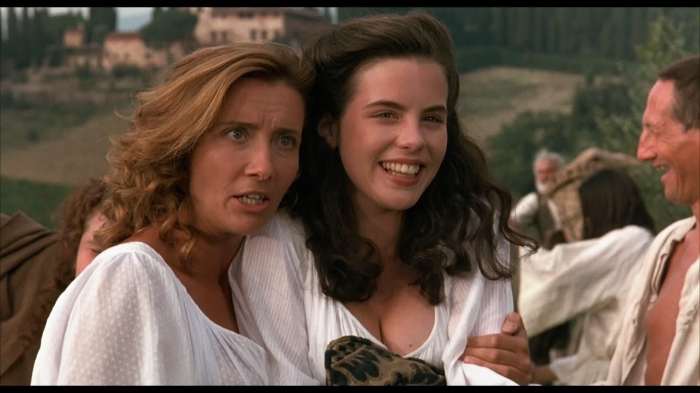Beatrice quotes from much ado about nothing – Beatrice, a spirited and intelligent heroine from Shakespeare’s Much Ado About Nothing, captivates audiences with her sharp wit and unwavering independence. Her memorable quotes not only showcase her linguistic prowess but also reveal her feminist perspective and challenge traditional gender roles.
This essay delves into the significance of Beatrice’s quotes, examining their impact on the play’s plot, character development, and overall themes. Through an analysis of her language, wordplay, and interactions with other characters, we explore how Beatrice’s voice contributes to the enduring appeal of Much Ado About Nothing.
Beatrice’s Wit and Intelligence
Beatrice is renowned for her sharp wit and quick tongue. Her intelligence sets her apart from other characters in the play, making her a formidable opponent in any verbal sparring match. Her clever remarks and witty banter are a constant source of amusement for the audience.
Examples of Beatrice’s Wit
- When Benedick claims that he is “a most wicked wit,” Beatrice replies, “A most wicked wit indeed, my lord. I am so glad to hear you are so ill.” (Act II, Scene I)
- To Benedick’s question, “Can the world buy such a jewel?” Beatrice responds, “Yea, and a case to put it into. But speak not wid’ me, for I cannot hide what I know.” (Act II, Scene I)
Beatrice’s Relationship with Benedick
Beatrice’s relationship with Benedick is one of the most complex and entertaining in the play. The two characters engage in a constant battle of wits, often exchanging barbed insults and clever quips. Despite their apparent animosity, there is an undeniable chemistry between them.
Nature of Their Relationship
Beatrice and Benedick’s relationship is a mix of love and hate. They are both attracted to each other’s intelligence and wit, but their pride and stubbornness prevent them from admitting their feelings.
Witty Banter and Wordplay
- When Benedick asks Beatrice, “What news?” she replies, “Good news, my lord. The Duke of Milan is reported to be dead.” (Act II, Scene I)
- To Benedick’s question, “What, my dear lady Disdain! Are you yet living?” Beatrice responds, “Is it possible disdain should die while she hath such meet food to feed it as Signor Benedick? Courtesy itself must convert to disdain, if you come in her presence.”
(Act II, Scene I)
Evolution of Their Relationship, Beatrice quotes from much ado about nothing
Over the course of the play, Beatrice and Benedick’s relationship undergoes a significant transformation. They gradually learn to appreciate each other’s qualities, and by the end of the play, they are both willing to admit their love for one another.
Beatrice’s Role in the Play

Beatrice plays a vital role in the plot of Much Ado About Nothing. She is a confidante to Hero, the play’s protagonist, and she helps to expose the villainous plot against her.
Actions and Words
- Beatrice’s quick wit and sharp tongue help her to unravel the truth about Don John’s plot.
- Her loyalty to Hero and her determination to protect her honor make her a valuable ally.
Significance as a Character
Beatrice is a strong and independent female character. She challenges traditional gender roles and expectations, and she is not afraid to speak her mind.
Beatrice’s Language and Style: Beatrice Quotes From Much Ado About Nothing

Beatrice’s language is characterized by its wit, intelligence, and playfulness. She uses wordplay, puns, and other rhetorical devices to create a lively and engaging style.
Use of Language and Imagery
Beatrice’s use of language is often metaphorical and imaginative. She compares Benedick to a “wicked wit” and a “case” to put her “jewel” in.
Speech Patterns
- Beatrice’s speech is often quick and rapid-fire.
- She uses short, clipped sentences and frequently interrupts others.
Memorable Quotes and Phrases
- “Sigh no more, ladies, sigh no more, / Men were deceivers ever.” (Act II, Scene III)
- “I would rather hear my dog bark at a crow than a man swear he loves me.” (Act II, Scene I)
Beatrice’s Feminist Perspective
Beatrice is a feminist character who challenges traditional gender roles and expectations. She is intelligent, independent, and outspoken.
Expressions of Feminism
- Beatrice’s sharp wit and quick tongue allow her to stand up for herself and other women.
- She refuses to be defined by her gender or her relationship status.
Relationship with Other Female Characters
Beatrice has a close relationship with Hero, the play’s protagonist. She is also friends with Margaret and Ursula, two other strong female characters.
Beatrice’s Impact on Audiences

Beatrice has been a popular and enduring character since the play’s first performance. Audiences have been drawn to her intelligence, wit, and independence.
Reception Over Time
Beatrice has been praised by critics for her complexity and realism. She is one of Shakespeare’s most well-developed and well-rounded female characters.
Influence on Other Characters
Beatrice has inspired many other literary characters, including Rosalind in As You Like It and Viola in Twelfth Night.
Query Resolution
What is the significance of Beatrice’s wit in Much Ado About Nothing?
Beatrice’s wit serves as a defense mechanism, allowing her to navigate a society that often undervalues women. Her sharp tongue and quick wit challenge traditional gender roles and subvert societal expectations.
How does Beatrice’s relationship with Benedick evolve throughout the play?
Beatrice and Benedick’s relationship begins with a facade of mutual disdain, but their witty banter gradually reveals their underlying attraction. As the play progresses, their verbal sparring evolves into a genuine and affectionate bond.
What is Beatrice’s feminist perspective, and how is it expressed in the play?
Beatrice’s feminist perspective is evident in her rejection of traditional gender roles and her insistence on equality. She challenges the patriarchal society by asserting her independence and refusing to conform to societal expectations.
